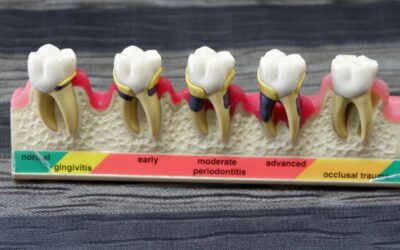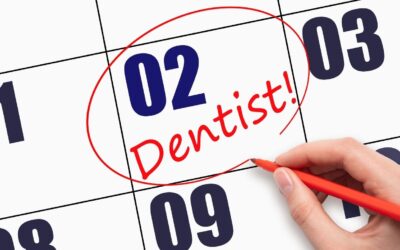Dental care can be a confusing process, especially when it comes to understanding all the medical codes associated with treatments. If you’ve ever been to the dentist and wondered what specific treatments are covered or why a particular code is mentioned on your bill, you’re not alone. One such code that you might come across is dental code D9944. But what exactly does it mean, and how does it affect your dental care and insurance?
In this article, we’ll explore what Dental Code D9944 is, its importance in dental billing, and how it might impact your insurance coverage. Whether you’re a patient trying to understand your dental bill or a dental professional looking to explain billing codes to your patients, this guide will break it all down for you.
What Is Dental Code D9944?
Dental codes, also known as CDT (Current Dental Terminology) codes, are a system of codes used by dental professionals to report dental procedures for billing, documentation, and insurance purposes. These codes are created and maintained by the American Dental Association (ADA). Dental Code D9944 refers to a specific procedure for “occlusal guard, adjustment”. In simpler terms, it’s a code used to report when a dentist adjusts a patient’s occlusal guard.
What is an Occlusal Guard?
Before diving into why D9944 is important, let’s first define what an occlusal guard is.
An occlusal guard, also known as a night guard or bite guard, is a dental appliance that’s used to protect your teeth from damage caused by grinding or clenching (a condition known as bruxism). These guards are often made from durable materials such as acrylic and are designed to fit over your upper or lower teeth.
Occlusal guards are commonly used for the following reasons:
-
Teeth grinding: Some people grind their teeth at night, which can wear down enamel and lead to other oral health problems.
-
Temporomandibular joint (TMJ) disorders: Those suffering from jaw pain or discomfort may benefit from a night guard.
-
Protecting dental restorations: If you have fillings, crowns, or other dental work, an occlusal guard can help prevent damage to them.
Why is Dental Code D9944 Important?
Dental Code D9944 plays a crucial role in the treatment of patients who require adjustments to their occlusal guard. Just like any dental appliance, an occlusal guard needs to be properly fitted to ensure it provides the necessary protection and comfort. Over time, adjustments may be needed as the fit can change, or a patient’s needs may evolve.
Here’s why understanding D9944 matters:
-
Insurance Billing: Many dental insurance providers require specific codes to process claims. When a dentist adjusts an occlusal guard, this procedure is documented under D9944, allowing the insurance company to assess and approve the claim for coverage.
-
Accurate Documentation: By using the correct dental codes, dental professionals ensure that they are accurately reporting the services provided. This helps avoid confusion or mistakes when it comes to billing and reimbursements.
-
Patient Transparency: For patients, understanding these codes can help in recognizing what specific services were performed and why they appear on their bills. It also ensures that patients are aware of what is being charged for, especially if adjustments to the guard are necessary.
How Does D9944 Affect Dental Insurance?
Dental insurance can be a tricky area to navigate, especially when it comes to understanding what is covered under your plan. The inclusion of Dental Code D9944 in your treatment can significantly impact how your insurance will respond to your claims.
-
Coverage for Adjustments: Not all dental insurance plans cover the adjustment of occlusal guards. However, D9944 allows you to get coverage for these adjustments, which can be an essential aspect of managing bruxism or TMJ disorders. Understanding your plan’s terms is vital to ensuring that you’re not hit with unexpected out-of-pocket costs.
-
Frequency of Adjustments: Dental insurance providers often limit the number of times you can claim for adjustments to an occlusal guard under D9944. Be sure to check your policy to understand how many adjustments are allowed per year.
-
Cost of Adjustment: In many cases, the cost of adjusting an occlusal guard may be significantly lower than the initial cost of creating one. Insurance coverage under D9944 can help reduce out-of-pocket expenses, but it’s essential to verify that your provider offers reimbursement for this service.
-
Documentation Requirements: Insurance companies may require that a dentist provides certain documentation, such as detailed treatment plans, before they approve a claim for D9944. Dentists will usually submit these documents to justify the need for the adjustment and the procedure performed.
What Happens During an Occlusal Guard Adjustment?
The procedure for adjusting an occlusal guard is typically straightforward. Here’s what you can expect if you need an adjustment:
-
Initial Assessment: The dentist will first examine the fit of your current occlusal guard. They may ask you questions about how it feels, whether it’s causing discomfort, or if it’s no longer protecting your teeth as it should.
-
Adjustment Process: The dentist will make minor modifications to the guard to improve its fit and comfort. This might include grinding down areas that are too tight or adding material to areas that need more support.
-
Final Check: After the adjustment, your dentist will ask you to try the guard in your mouth to ensure the new fit is comfortable. They will make any final tweaks if necessary.
These adjustments help ensure that the occlusal guard continues to perform its intended function, reducing wear and tear on your teeth and alleviating discomfort caused by bruxism or TMJ disorders.
D9944 vs. Other Dental Codes
It’s important to note that Dental Code D9944 is just one of many codes in the dental billing system. There are other codes related to occlusal guards that might apply to your treatment:
-
D9940: Occlusal guard, initial charge
-
D9941: Occlusal guard, repair
-
D9942: Occlusal guard, replacement
Each of these codes corresponds to a specific procedure, and understanding the distinctions between them can help clarify what is covered under your insurance policy and what you may need to pay for out-of-pocket.
FAQs About Dental Code D9944
Is Dental Code D9944 covered by insurance?
Many dental insurance plans cover the adjustments for occlusal guards, but the specifics depend on your policy. Always check with your insurance provider to confirm coverage for D9944.
How often can I use Dental Code D9944?
The frequency of adjustments covered under D9944 may be limited by your insurance plan. Typically, insurers allow a certain number of adjustments per year.
What is the cost of an occlusal guard adjustment?
The cost of adjusting an occlusal guard varies based on the dentist’s fees and location. However, adjustments are typically less expensive than the initial cost of creating the guard.
Can I adjust my occlusal guard myself?
It’s essential to have a dental professional adjust your occlusal guard to ensure it fits correctly and functions as intended. DIY adjustments could lead to discomfort or even damage to your teeth.
Conclusion
Understanding Dental Code D9944 is essential for patients and dental professionals alike. It provides a clear way for dental professionals to document and report adjustments to occlusal guards, which can be a crucial part of managing teeth grinding and TMJ disorders. Knowing how this code works and how it can affect your dental insurance helps you make more informed decisions about your treatment and ensures that you are adequately covered.
Always remember to review your insurance policy, discuss any necessary adjustments with your dentist, and stay informed about the specific dental codes used in your treatment. By doing so, you’ll have a clearer picture of what’s being done and what’s covered under your dental plan.



